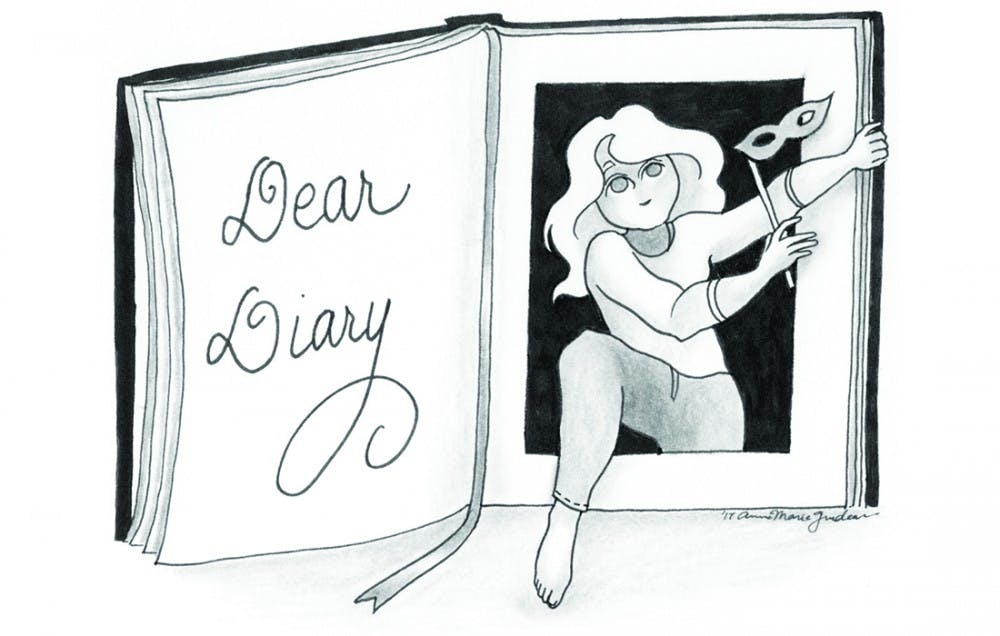I’ve had the same problem since I was ten.
A month ago, I was going through my desk drawer, frantically searching for a pair of scissors to bring to college, when I came across the diary I kept in fifth grade. I flipped through its pages until something at the bottom of an entry made me stop: “There’s a girl in my class who is really pretty, and I think I have a crush on her. But I’m not like that."
Add a couple more punchy verbs, and I could have written this yesterday. Seeing it in print made me so nauseous that I considered ripping the page out of my journal and throwing it away. But I knew disposing of my truth wouldn’t change it: I am bisexual.
For years, I have tucked my sexuality behind strands of my thick, blonde hair and the thread of preppy clothing—pieces of myself that never made others question it. I am a quiet, petite, blue–eyed girl. Most people assume I’m straight.
Starting in the eighth grade, I attended private school in Manhattan, and like every high schooler, I tried to fit in. But popularity wasn’t just dependent on looks. Gossip Girl isn’t all fiction—money mattered too.
Subscribing to a culture of wealth I didn't completely belong in consumed most of my energy, and I lost pieces of myself along the way, or concealed them for convenience. Most of the time, I didn’t feel pretty enough, thin enough, or rich enough; however, being straight was a quality I shared with many of my classmates. It made me feel safe.
But the comfort I found in hiding my identity was sometimes replaced with pain.
I remember one afternoon, I was doing my homework in the commons area when I started to cry. I was thinking about telling my friends. It felt too difficult, and dealing with my identity alone hurt.
“Isa, what’s wrong?” a girl who’d noticed me asked.
“Uh, just a boy problem.”
I wanted more than anything to be honest. There were times when coming out felt like the right thing, but those moments were counterbalanced by small parts of the culture that made it feel like being queer wasn’t okay. In my high school, homophobia wasn’t overt; it hid in corners, ones I observed and used to push myself back into my closet.
Girls hooking up with girls was mainly seen as an attempt to garner the attention of guys; boys in my grade called each other gay as an insult; and when someone would come out, it was gossip.
When I got to Penn just over a month ago, I was determined to maintain the image of myself I curated in high school. I planned on strutting down Locust in designer clothes, rushing a sorority, and posting Instagrams with new friends. Instead, I found myself alone in my dorm room, struggling to cope with extreme loneliness.
Every morning of NSO, I woke up in tears. I was homesick. I missed my friends. At times, I even yearned for the familiarity of high school. The only thing I found solace in was my writing, which required me to be the most vulnerable version of myself.
I’ve always made excuses to procrastinate coming out. When I get into college, I’ll tell my friends. If I’m dating a guy, nobody has to know. Maybe this will go away.
There is no right time to be open about who I am. The people who won’t accept me aren’t going anywhere, but neither is my sexuality. And I like lonely, honest Isabella better than insecure, materialistic Isabella, so I’m choosing to ignore the corners of bigotry that once limited me.

